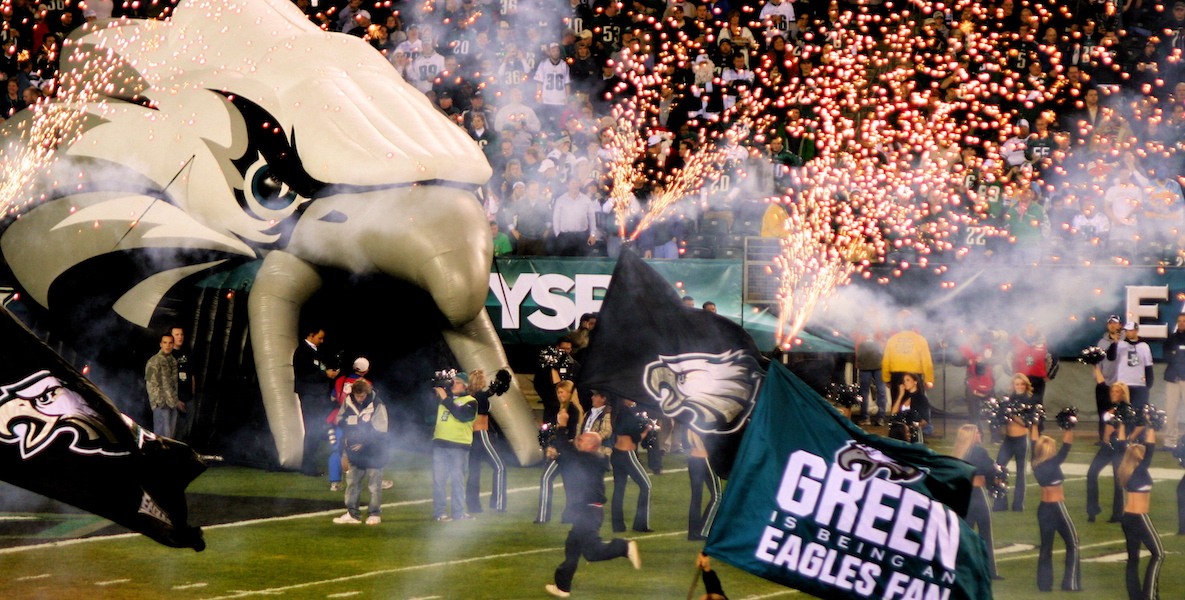Along with Eagles announcer and former all-pro wide receiver Mike Quick, The Citizen is again bringing you a football matchup you won’t find in the sports pages: A civic comparison between Philly and the city we beat, er, play each week on the field. Go here to see how we stack up against our opponents.
Here’s what the numbers mean:
# of B Corporations: B Corporations are companies certified by Berwyn-based nonprofit B Lab, after a rigorous review of their business practices. They are for-profit companies—like Warby Parker and Patagonia—who have pledged to be socially responsible, to employees, the environment and the surrounding community. Data via the B Corporation website.
% Population with a BA: The percentage of Philly residents with a four year undergraduate degree as calculated by the American Community Survey, and reported by Civic Dashboards. Data from 2015.
% Volunteers: The percentage of the total population that volunteers, as reported by the Corporation for National & Community Service. Data from 2015.
Violent crime per 1,000 residents: This refers to the number of violent crimes as defined by the FBI, which includes murder, manslaughter, rape, robbery and aggravated assault. We’re using the latest available FBI stats, which are for 2016. Data via CivicDashboards.
Diversity Rating: Diversity makes for better, safer and more interesting cities. But comparing diversity from city to city can be tough. This year, we’re using a “cultural diversity” score compiled by WalletHub, which compares ethno-racial, birthplace and linguistic diversity across the country. Data for the ratings came from the U.S. Census Bureau, via the Herfindahl-Hirschman Index method, a measurement of market concentration that also can also apply effectively to diversity.
% Bike to work: The ability to bike to work is indicative of a number of things: Healthier residents, jobs near where people live, and care for the environment—all things that make for a better city. Data via the League of American Bicyclists.
% Acres of Park Space: Green space provides cleaner, safer, prettier and more welcoming neighborhoods—which is we are lucky to have Fairmount Park, the largest urban park in the country. Data via the Trust for Public Land.
Public transportation score: If people can’t bike, they should at least be able to hop on public transportation to get where they’re going. We determine the best cities for public transit using WalkScore.com’s Transit Score index, which measures the efficiency, reliability, and accessibility of a city’s public transportation system. Data via WalkScore.com.
% Voted in Last Mayoral Election: Quite simply, the more people who turn out to vote, the stronger a city’s civic record. Here, we look at the percentage of eligible voters who came out to vote for mayor—in most cities an off-year election that doesn’t coincide with the relatively higher turnout presidential race. Data via WhoVotesforMayor.org, except: Atlanta; Tampa; Indianapolis; Nashville; Minneapolis; New York; New Orleans; and Los Angeles.
Photo: firefighters daughter via Flickr

